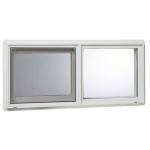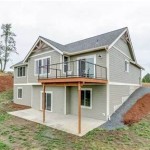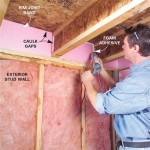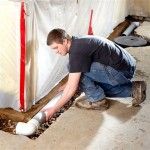Finishing Basement Walls: A Comprehensive Guide
Transforming your unfinished basement into a functional and aesthetically pleasing space is a worthwhile project that can add value to your home. One of the most crucial aspects of this renovation is finishing the basement walls, which not only enhance the overall look but also provide insulation, moisture control, and durability.
Materials for Basement Wall Finishing
Choosing the right materials for your basement wall finishing is essential. Some popular options include:
- Drywall: A traditional and economical choice that provides a smooth, paintable surface.
- Paneling: Adds a finished look without the need for painting or drywalling. Available in various materials such as wood, vinyl, or PVC.
- Insulating Panels: Provides insulation and soundproofing in one step, making them ideal for basements prone to moisture or noise.
Step-by-Step Basement Wall Finishing Guide
1. Preparation
Before starting any finishing work, prepare the basement walls by removing any existing material, cleaning and repairing any cracks or holes, and ensuring they are dry and free of moisture.
2. Framing
Depending on the wall material you choose, you may need to install framing to support it. For drywall or paneling, use 2x4 studs spaced 16 inches on center. For insulating panels, follow the manufacturer's instructions.
3. Insulation
If not using insulating panels, consider adding insulation between the studs to improve thermal efficiency and reduce sound transmission.
4. Drywall or Paneling Installation
If using drywall, install it using screws or nails and joint compound to conceal seams. For paneling, follow the manufacturer's installation instructions.
5. Finishing Touches
Once the walls are covered, you can add finishing touches such as paint, molding, or wallpaper to match your desired aesthetic and decor.
Essential Tips for Finishing Basement Walls
Here are some essential tips to ensure a successful basement wall finishing project:
- Control Moisture: Install a basement waterproofing system to prevent moisture damage to your finished walls.
- Provide Ventilation: Ensure adequate ventilation to prevent mold and mildew growth.
- Consider Space Use: Plan the wall finishes based on the intended use of the basement, such as living space, storage, or recreational area.
- Hire a Professional: If you are not confident in your DIY skills, consider hiring a qualified contractor for professional basement wall finishing.

Q A Finishing Basement Walls Jlc Online

How To Finish A Basement Wall Finishing Makeover Renovations

How To Finish A Basement Wall Diy Family Handyman

How To Insulate A Basement Wall Greenbuildingadvisor

Nine Steps To Take Before Finishing Your Basement In Greater Toronto

New Gold Standard For Finishing A Basement Cherry Hill Contractor Shows You How Next Level Remodeling

Basement To Beautiful Insulated Wall Panels In Connecticut

How To Finish Basement Walls Hgtv

Finishing Basement Walls How To Make Your Below Grade Space Livable Bob Vila

Basement Finishing Do Not Paint Your Walls








